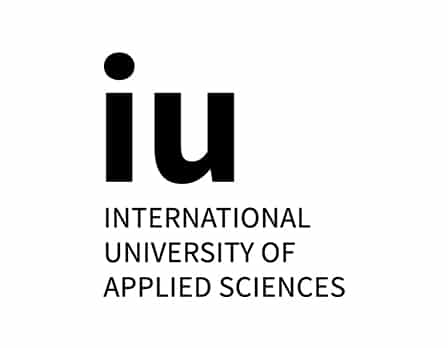Complex challenges are hardly ever solved by one single discipline. The late Steve Jobs summed it up best in 2011 when he shared that “technology, married with liberal arts, married with the humanities” fuelled the iPhone’s success. Much like the tech sector, modern business environments thrive when spearheaded by leaders with multidimensional understanding.
The intersection of management and engineering, in particular, is becoming increasingly crucial — unsurprising, considering both technical and business skills dominate today’s job market. That said, employers are right to seek talents who can foster collaboration, streamline processes and encourage innovation in both domains.
IU International University of Applied Sciences thrives at producing such standout candidates. Established in 1998, it has quickly become Germany’s largest university. Accredited by the German Council of Science and Humanities, its mission since its inception has been to create inclusive, global and wholly accessible education. Hence it has remained at the forefront of online learning for over a decade, ensuring its students can learn anytime, from anywhere, without setting aside their existing responsibilities.

Source: IU International University of Applied Sciences
In fact, it is one of the first German universities (of applied sciences) to receive a Premium quality seal in “Excellence in Digital Education” from FIBAA. IU is also the first German university to achieve a five-star rating and 99 out of 100 points on QS Quacquarelli Symonds for online learning.
This reputation makes IU the ultimate choice for Bachelor and postgraduate studies. Young graduates looking for opportunities in MENA or internationally, as well as professionals keen on career advancement can easily find everything they need and more here, beginning with a state-of-the-art distance learning model. Flexible and convenient, it enables learners to take their exams online — any time of the day, on any day of the week. IU’s digital campus and its study app, IU Learn, make virtual preparation all the easier.
With 94% of its degrees available online, it’s little wonder why IU is currently broadening the intellectual horizons of over 100,000 students — a majority of whom are focused on fast-tracking their climb up the professional ladder. There’s never been a better time to join them.
The Skills Revolution and the Future of Learning and Earning report by McKinsey foresees that millions of workers globally will need to change occupations as automation is increasingly deployed. It also notes that the demand for both basic and advanced digital skills will grow, and that bold and frequent upskilling can expand earning opportunities. In the MENA region especially, technology and digital transformation is changing the nature of work and the skills that are needed.

Source: IU International University of Applied Sciences
IU’s Engineering Management programme (both Bachelor and Master) is bold in every sense of the word, designed to produce a new generation of engineers who can lead teams and projects effectively. The Bachelor programme allows young starters to work at the interface between business management and technical functions, whereas the Master specifically caters to engineering undergraduates keen on setting themselves apart as exceptional candidates for global companies, where senior positions are well compensated.
For context, while junior engineers can expect to earn about US$56,127 per year according to PayScale; engineering managers earn an average of 99,500 euros (approximately US$106,791.66 at the time of writing) and upwards annually, according to Glassdoor. Master in Engineering Management graduates are especially likely to secure employment in organisations specialising in manufacturing, construction, automotive, aerospace, IT, biotech and more.
The programme prepares students for these industries by helping them establish a strong connection between technical skills and business management skills; giving them the tools to successfully manage teams in overcoming challenges; exploring the different aspects of technical management; instilling strong work ethics; and covering the basics like performance measurement, product development and strategic management while also touching on future-focused topics such as Industry 4.0 and the Internet of Things.
This breadth ensures graduates remain versatile throughout their careers and will never run out of options. They could start or lead the development of cutting-edge technical products as a project engineer. Those more passionate about leveraging the holistic approaches they learned during their studies could focus on supporting and leading teams as an engineering project manager. Tomorrow’s innovators might opt to take the route of a product development manager, whose main responsibility is to introduce new products and technologies compatible with Industry 4.0 principles.
Ready to take your pick? Click here to explore your chances of receiving one of IU’s competitive scholarships which cover up to 67% of tuition fees.
Follow IU International University of Applied Sciences on Facebook, Instagram, LinkedIn, and YouTube












